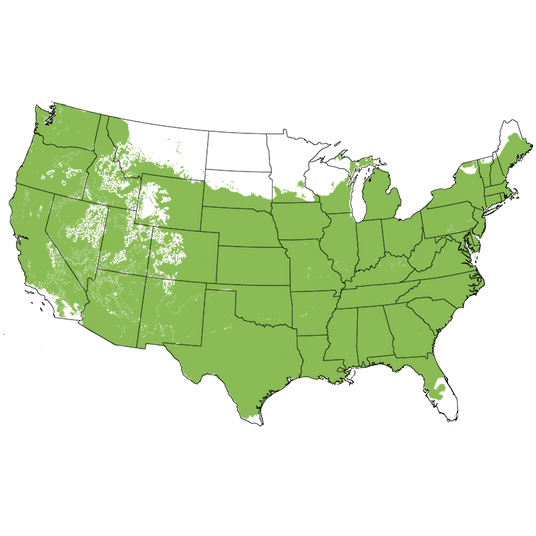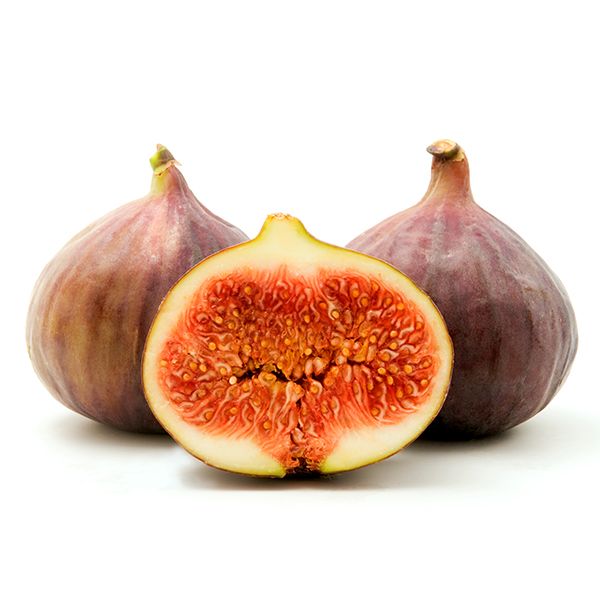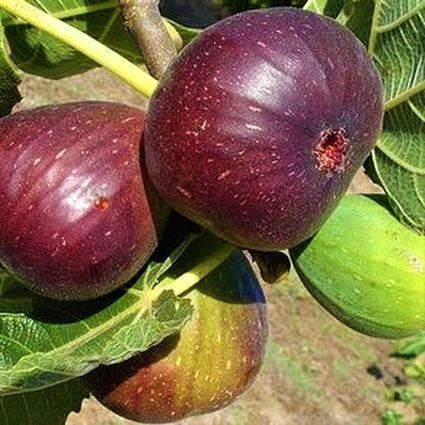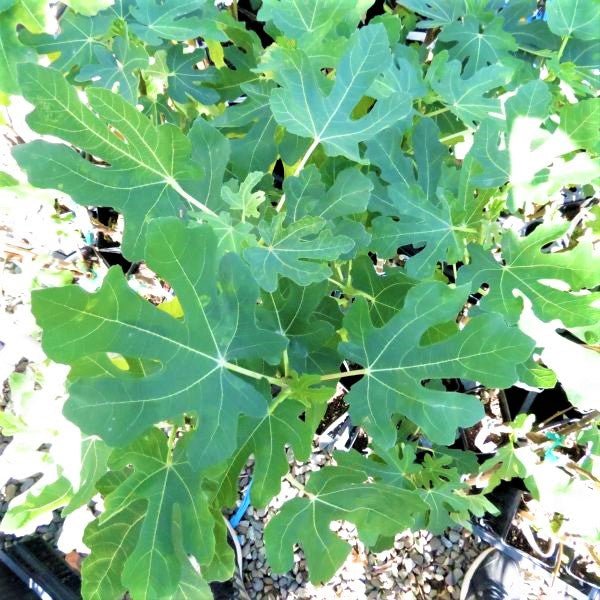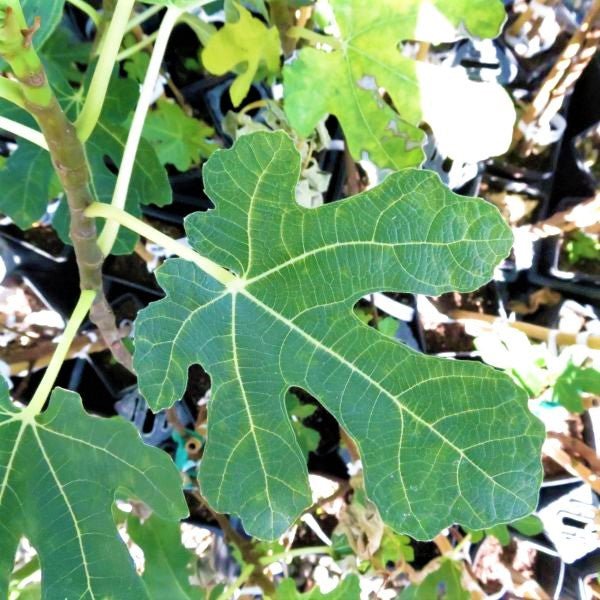Brown Turkey Fig Tree
Ficus carica 'Brown Turkey'
Planting & Care
Planting & Care
Delivery and Shipping
Delivery and Shipping
Preorder Shipping Schedule
We ship your plants when it's safe to transport them to your zone. Dates are estimated and subject to weather delays.
| Zone 3-4 | Week of March 30th |
| Zone 5 | Week of March 16th |
| Zone 6 | Week of March 2nd |
| Zone 7-12 | Week of February 23rd |
Shipping Rates
Ships in 3-4 business days • Tracking provided • Weather protected
| Under $50 | $9.99 |
| $50 - $99.99 | $14.99 |
| $100 - $149.99 | $16.99 |
| $150 - $198.99 | $24.99 |
| $199+ | FREE |
✓ Zone-specific timing • ✓ Professional packaging • ✓ Health guarantee

Plant Sentry™ Protected
Your order is protected by our compliance system that:
- Prevents restricted plants from shipping to your state
- Ensures plants meet your state's agricultural requirements
- Protects gardens from invasive pests and diseases
Do you love Figs to enjoy fresh or dried and in special recipes? Forget about paying high prices at the grocery store, when it's so easy to grow your own tree! Foodies take note! There is nothing like a hand-picked Fig fresh from your own tree, still warm from the sun.
Dual crops of wonderful fruit can be harvested each year from the lively Brown Turkey Fig (Ficus carica 'Brown Turkey'). Sweet, lush, delectable fruit features purplish to rusty-red skin and blush pink flesh.
The first breba crop arrives from late spring to early summer. Then you'll soon be rewarded with the main crop sometime in early fall.
Brown Turkey Fig fans praise the rich, mild flavor, and subtle sweetness that works well in many dishes. The fruit is outstanding for home preserves, canning, drying or eating fresh as a healthy snack. The bronze fruits feature sumptuous red flesh and snappy edible seeds. Fresh figs are a true Epicurean delight. A ripe breba Brown Turkey is soft and mild, with notes of hazelnuts and pastry.
It's so satisfying to harvest incredibly fresh figs for snacking, baking and more from your very own tree. Best of all, you'll know exactly how your food was cared for over many productive years. Pick the ripe Figs when the texture turns soft. Use garden shears or hand-pick your crops with a gentle tug upward. Enjoy!
It is a lovely ornamental plant, as well. Distinctive, huge, light green leaves fill out the grey branches. Enjoy their fun and funky look and spicy fragrance all season long. Although Brown Turkey Figs can grow to a medium height of 10 - 15 feet tall and 12 - 15 feet wide, they can also be pruned easily to keep them at the right height for you.
Grow a Brown Turkey Fig in the ground in warmer Zones where the climate is cooperative. Or, plant your tree in a large container in colder Zones or if space is at a premium. Brown Turkey Fig trees are partially self-pollinating, so you'll just need one for fruit. If you love figs, get yourself two or add another variety. Like most fruiting plants, a partner tree will really boost your productivity.
Planting and Application:
Yes, you can plant Brown Turkey in a container and grow fruit from your deck, patio or balcony! It's also very tolerant of urban conditions, so you can enjoy fresh fruit in the heart of the city. Use them along a pool deck or near your kitchen door to have handy ingredients for hors d'oeuvres.
Brown Turkey Fig belongs in every edible landscape! Any way you use it, Brown Turkey Fig can become a cherished specimen plant for you. The foliage and ornamental fruit definitely bring a high-end look to your landscape.
Brown Turkey is a great ornamental plant, either in the ground or in containers. The lush, large, tropical-looking foliage can screen out ugly views for you. Low branches provide wonderful screening to block unsightly views. It is also one of the best for containers grown as patio décor. Even container-grown plants can be placed "strategically" to boost your privacy. Use them very successfully as a wonderfully useful hedge.
To create a solid, fruitful screen, plant them 5 feet apart on center. Measure from the center of one to the center of the next. Grow them informally, not sheared.
The size of this tree will vary with the climate where it is being grown. In warm climates, they grow larger. In-ground trees can be used as a marvelous backdrop along a fence line. In growing Zones 5 and 6, just cover it well, or bring your container into an unheated garage or shed to go dormant over the winter. When you bring it back outside, the show begins again!
(Pro tip: get a sturdy plant caddy with wheels on the bottom. Place your container on top of the caddy first, before you fill it with dirt and plant your fig. It will make your life a lot easier!)
In Zones 5 and 6, in-ground plants may die back to the ground each year. They'll become a shrubbier plant with new growth from the roots each year. Consider them a landscape shrub that needs winter protection.
- Two Harvests a Year!
- Breba Crop in Spring & Main Crop in Early Fall
- Healthy & Sweet Fruit - Mild Nutty Tasting Edible Seeds
- Amazing, Fragrant Lobed Foliage
- Prolific, Vigorous Tree & Long-Lived
- Edible Landscaping, Screening/Privacy, Containers, Specimens
#ProPlantTips for Care:
You don't need to have a green thumb to grow a Fig tree! They don't require a lot of fuss to keep them looking and performing their best. Simply plant your tree where it will receive at least 6 hours of direct sunlight a day. They'll do best in well-drained soil.
Handle with care when planting your Fig, as their roots display some sensitivity. Take your time and gently place the root ball into your planting hole. Follow planting instructions on your order confirmation and on our website. Use Nature Hills Root Booster to get your new Fig tree off on the right start!
Give Fig trees an even amount of water on a regular basis to avoid splitting fruit. Use the Finger Test to determine when to water. Stick your finger into the soil near the plant up to the 2nd knuckle. Getting dry? Time to water. Still moist? Skip watering and check in a day or two. They'll like a thick layer of mulch over their root systems, and you'll appreciate the savings on your water bill. Pull mulch back 6 inches back from the trunk.
Brown Turkey requires hard pruning to keep its wide-spreading nature under control and promote a heavy main crop each season. Prune in winter while your tree is dormant. This is one of the best to Espalier; a pruning technique that has been popular in Europe for generations.
This selection of Fig Tree is cold-hardy down to zones 5, 6, and 7 outdoors but will need some winter insulation/protection to survive. Some people do grow them in containers so they can be wintered in unheated garages, cool greenhouses, or areas where the plants remain dormant but will not get colder than about 20°F. These trees don't do best being brought in as houseplants, and do need to go dormant for winter, but can be temporarily housed indoors during extreme weather.
Brown Turkey is a hardier selection that can be grown in the ground and will overwinter outside if the root system is heavily mulched and protected by a cage filled
with straw or mulch of some kind.
- Can Be Grown in Containers in Zones 5 & 6 With Dormant Winter Protection
- Must Have Full Sun
- Well-Drained Enriched Soil
- Open Eye Variety
- Prune During Dormancy
- Low Chill - About 100 Hours
- Virtually Pest Free
Sweet tree-ripe Figs are one of the world's best taste and growing experiences. Plant your own Brown Turkey Fig to enjoy two crops a year! Order today at Nature Hills!
Fig Tree FAQ
At what age do Brown Turkey Fig Trees bear fruit?
Nature Hills ships Fig trees with mature root systems that are already 2-3 years of age and the typical Fig tree will begin producing fruit at 3-5 years in optimal conditions.
Where is the best place to plant a Brown Turkey Fig tree?
Fig trees, like nearly all fruiting trees and shrubs, need enriched, well-drained soil in a full sun location to flower and fruit the best.
Are Fig Trees Self-Pollinating
Fig Trees are partially self-fruitful but do best with a pollination partner. Brown Turkey is parthenocarpic and an open eyed-type of Fig and should have another similar Fig Tree planted nearby to maximize pollination chances.
What Shipping Options Do You Offer?
NatureHills.com works closely with our growers and nursery professionals to ensure we ship when it is most appropriate for your area. Our goal is to deliver the hardiest plants by avoiding extreme high and low temperatures. Check out our shipping schedule for more information and to learn our wills and won'ts when it comes to shipping plants. Find your Fig Trees for sale here at NatureHills.com!
-
Botanical Name
-
Class
-
Species
-
Cultivar
-
Growing Zones
-
Height
-
Width
-
Sunlight
-
Growth RateModerate
-
Flower Color
-
Leaf Color
-
FragrantYes
-
Bloom PeriodEarly Summer, Late Summer
-
Does Not Ship ToAK, HI, ID, MT, OR
